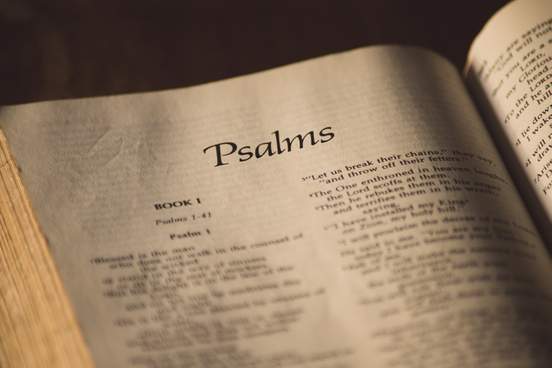Navigating the Spelling of Yacht: A Smooth Sailing Guide

The word "yacht" often raises eyebrows when it comes to spelling. This term, synonymous with luxury and leisure on the water, has a spelling that doesn't quite align with its pronunciation, leading many to second-guess themselves. In this article, we'll set sail through the correct spelling of "yacht," providing you with tips and examples to ensure that your writing journey is as smooth as a serene sea.

Understanding Yacht
A yacht is a type of boat or ship that is often used for pleasure, racing, or cruising. Originating from the Dutch word "jacht," which means "hunt," it was originally used to describe light, fast sailing vessels used to chase pirates. The transformation from "jacht" to "yacht" in English is where the spelling complexity lies.
The Spelling Challenge
The main challenge with "yacht" is its unorthodox spelling compared to its pronunciation. The 'ch' is silent, and there's no hint of the 't' in how it's spoken, which can lead to misspellings like "yatch," "yaght," or "yaht."
Tips for Spelling Yacht
- Remember the Dutch origin: The 'cht' is a common Dutch spelling.
- Silent 'ch': The 'ch' in yacht is not pronounced.
- End with 't': Despite not being pronounced, it's always there.
Grow sessions and drive revenue for your eCommerce brand
Get a demo and discover how eCommerce brands use Strategically AI to drive sessions, grow revenue, and reduce reliance on paid ads.

Examples in Context
Using "yacht" in sentences can help reinforce its correct spelling:
- They spent the weekend sailing on a luxury yacht.
- His dream was to circumnavigate the globe in a yacht.
Spelling Yacht Correctly
To ensure you always spell "yacht" correctly, consider these strategies:
- Link to Its Origin : Remembering its Dutch origin can help with the 'cht.'
- Visual Association : Associate the word with an image of a yacht, reinforcing the spelling.
- Create a Mnemonic : Think of "You Always Can Have Tea" (Y-A-C-H-T).
Summary and Key Insights
Remember, spelling "yacht" correctly is all about understanding its origin and unique spelling pattern. It's a word that might not follow the usual rules, but with a bit of practice, it becomes easy to handle.
Frequently Asked Questions
What is a common mistake when spelling "yacht".
A common mistake is spelling it as "yatch," reversing the 'a' and the 't.'
Can "yacht" refer to any boat?
No, a yacht specifically refers to a medium to large-sized boat used for leisure, racing, or cruising.
How can I easily remember the spelling of "yacht"?
Remember the silent 'ch' and the Dutch origin. A mnemonic like "You Always Can Have Tea" can also be helpful.
Why does "yacht" have a silent 'ch'?
The silent 'ch' in "yacht" comes from its Dutch origin, where such spellings are more common.
Is "yacht" spelled differently in other languages?
Yes, the spelling of "yacht" can vary in languages other than English, often aligning more closely with its pronunciation.
Mastering the spelling of "yacht" is like learning to navigate the high seas – it might seem daunting at first, but with the right knowledge and practice, it becomes second nature. Whether you're writing about maritime adventures or luxury travel, getting the spelling right is crucial. And for all your writing needs, from crafting engaging travel blogs to professional content, our expert content writing agency at Strategically is here to help, offering SEO content, unlimited revisions, and more to ensure your writing is as impressive as a sleek yacht gliding over the waves.

Maximize Your E-Commerce Success: Expert PDP Optimization Strategies

Rebecca Hey
16 July 2024

How to Add a Description to Your Shopify Collection Pages
3 July 2024

How to See How Many Products You Have on Shopify
1 July 2024

SEO for Product Descriptions: Boost Your Sales and Visibility

How to Bulk Edit Products on Shopify
28 June 2024

How to change collection URL in Shopify
24 June 2024
Definition of 'yacht'

yacht in British English
Yacht in american english, examples of 'yacht' in a sentence yacht, trends of yacht.
View usage for: All Years Last 10 years Last 50 years Last 100 years Last 300 years
Browse alphabetically yacht
- Yablonovy Mountains
- Yablonovyy Range
- yacht chair
- yacht charter
- All ENGLISH words that begin with 'Y'
Related terms of yacht
- motor yacht
- royal yacht
- View more related words
Wordle Helper

Scrabble Tools
Quick word challenge
Quiz Review
Score: 0 / 5

- Access the entire site, including the Easy Learning Grammar , and our language quizzes.
- Customize your language settings. (Unregistered users can only access the International English interface for some pages.)
- Submit new words and phrases to the dictionary.
- Benefit from an increased character limit in our Translator tool.
- Receive our weekly newsletter with the latest news, exclusive content, and offers.
- Be the first to enjoy new tools and features.
- It is easy and completely free !
- Daily Crossword
- Word Puzzle
- Word Finder
- Word of the Day
- Synonym of the Day
- Word of the Year
- Language stories
- All featured
- Gender and sexuality
- All pop culture
- Writing hub
- Grammar essentials
- Commonly confused
- All writing tips
- Pop culture
- Writing tips
Advertisement
- a vessel used for private cruising, racing, or other noncommercial purposes.
verb (used without object)
- to sail, voyage, or race in a yacht.
- a vessel propelled by sail or power, used esp for pleasure cruising, racing, etc
- short for sand yacht ice yacht
- intr to sail or cruise in a yacht
Other Words From
- yachty adjective
- super·yacht noun
Word History and Origins
Origin of yacht 1
Compare Meanings
How does yacht compare to similar and commonly confused words? Explore the most common comparisons:
- yacht vs. sailboat
Example Sentences
As City News explained it, the bribes were paid not only in cash but through rugs, antiques, furniture, yacht club fees, boat repairs and more.
In Ashburn, Snyder is always lurking in spirit, even if he is on his 305-foot yacht somewhere in the Aegean.
Driving across country in a gigantic land yacht—with its crushed-velour seats and faux wood siding—was more practical than a two-door hot rod.
Host Jason Moore chats with experts who share tips harvested from their real-life experiences, such as a couple who paid off their $70,000 debt to travel full time and a woman who left her corporate job to work on a yacht.
Until Thursday, when federal agents escorted him off a 150-foot yacht moored in Long Island Sound, the word often used to describe Steve Bannon was “irrelevant.”
Instead the money allegedly was spent on luxury cars and a yacht club membership, among other things.
Loeb owns a $100 million penthouse on Central Park West and a $50 million yacht.
Solaire has set up charging capabilities at a project it built at a yacht club in Massachusetts, for example.
On my way back into town, I walked by the fortress of tents surrounding the harbor, readying for the yacht show.
Newly-minted Londoner, Lindsay Lohan, is currently chilling out on a yacht in Italy.
I heard her say to one of the servants once that my father had been lost on a yacht, and that he was oh, ever such a handsome man.
He owned a 54-ton yacht named the Opal, and attributed the wonderful health he enjoyed to his numerous sea voyages.
Another yacht had started from the old boathouse at about the time our friends and their new-fangled craft got under way.
Caermarthen ordered out his wonderful yacht, and hastened to complain to the King, who was then at Loo.
The yacht had long turned the head of the island and was beating down alongshore in the eastern bay.
Related Words
- 1.1 Etymology
- 1.2 Pronunciation
- 1.3.1 Derived terms
- 1.3.2 Translations
- 1.4.1 Translations
- 1.5 Anagrams
- 2.1 Etymology
- 2.2 Pronunciation
- 2.4 Further reading
- 3.1 Etymology
- 3.2 Pronunciation
- 3.4 References
- 3.5 Further reading
- 4.1 Etymology
- 5.1 Etymology
- 5.3 References
- 6.1 Etymology
- 6.3 References
- 7.1 Alternative forms
- 7.2 Etymology
- 7.3.1 Declension
- 7.3.2 Derived terms
- 7.4 Further reading
Circa 1557; variant of yaught , earlier yeaghe ( “ light, fast-sailing ship ” ) , from Dutch jacht ( “ yacht; hunt ” ) , in older spelling jaght(e) , short for jaghtschip ( “ light sailing vessel, fast pirate ship ” , literally “ pursuit ship ” ) , compound of jacht and schip ( “ ship ” ) .
In the 16th century the Dutch built light, fast ships to chase the ships of pirates and smugglers from the coast. The ship was introduced to England in 1660 when the Dutch East India Company presented one to King Charles II, who used it as a pleasure boat, after which it was copied by British shipbuilders as a pleasure craft for wealthy gentlemen.
Pronunciation
- ( UK ) enPR : yŏt , IPA ( key ) : /jɒt/
- ( US ) enPR : yät , IPA ( key ) : /jɑːt/ , /jɑt/
| Audio ( ): | ( ) |
- Rhymes: -ɒt
yacht ( plural yachts )
- 1897 December (indicated as 1898 ), Winston Churchill , chapter X, in The Celebrity: An Episode , New York, N.Y.: The Macmillan Company ; London: Macmillan & Co., Ltd. , →OCLC : The skipper Mr. Cooke had hired at Far Harbor was a God-fearing man with a luke warm interest in his new billet and employer, and had only been prevailed upon to take charge of the yacht after the offer of an emolument equal to half a year's sea pay of an ensign in the navy.
- 1907 August, Robert W[illiam] Chambers , chapter VI, in The Younger Set , New York, N.Y.: D. Appleton & Company , →OCLC : “I don’t mean all of your friends—only a small proportion—which, however, connects your circle with that deadly, idle, brainless bunch—the insolent chatterers at the opera, [ … ] , the chlorotic squatters on huge yachts , [ … ] , the neurotic victims of mental cirrhosis, the jewelled animals whose moral code is the code of the barnyard—!"
Derived terms
- motor yacht , motoryacht , MY
- sailing yacht , steam yacht , SY
- yacht person
Translations
| (yaḵt) (yaḵt) (zbosanav) (jáxta) (jáhta) (rwakhle) (tsiyu) (yóutǐng) , , , (iaxṭa) , (giot), (thalamigós) (yakhta) (yāxṭ) , (yotto) (äxta) (tuuk kɑmsaan) (yoteu) (yahta) (hư̄a bai) (jahta) (darvuult ongoc) (yât) (jáxta) , , (rʉʉa-bai), , (jáxta) , |
| (jahta) , (thalamigós) (yakhta) (fune), (bōto) , |
yacht ( third-person singular simple present yachts , present participle yachting , simple past and past participle yachted )
- ( intransitive ) To sail , voyage , or race in a yacht .
| (darvuult ongocoor javax) |
- Cathy , tachy , tachy- , yatch
Borrowed from English yacht , from Dutch jacht .
- IPA ( key ) : /jɔt/ , /jot/ , ( Canada ) /jat/
| Audio: | ( ) |
yacht m ( plural yachts )
Further reading
- “ yacht ”, in Trésor de la langue française informatisé [ Digitized Treasury of the French Language ] , 2012 .
Unadapted borrowing from English yacht .
- IPA ( key ) : /ˈjɔt/ [ 1 ]
- Rhymes: -ɔt
yacht m ( invariable )
- the letter Y in the Italian spelling alphabet
- ^ yacht in Luciano Canepari , Dizionario di Pronuncia Italiana (DiPI)
- yacht in Treccani.it – Vocabolario Treccani on line , Istituto dell'Enciclopedia Italiana
Borrowed from English yacht .
yacht ? ( plural yachts )
- ( Jersey ) yacht
Norwegian Bokmål
From Dutch jacht , via English yacht .
yacht m ( definite singular yachten , indefinite plural yachter , definite plural yachtene )
- “yacht” in The Bokmål Dictionary .
Norwegian Nynorsk
yacht m ( definite singular yachten , indefinite plural yachtar , definite plural yachtane )
- “yacht” in The Nynorsk Dictionary .
Alternative forms
yacht c
| Declension of | ||||
|---|---|---|---|---|
| Singular | Plural | |||
| Indefinite | Definite | Indefinite | Definite | |
| Nominative | ||||
| Genitive | ||||
- yacht in Svenska Akademiens ordlista ( SAOL )
- yacht in Svensk ordbok ( SO )
- yacht in Svenska Akademiens ordbok ( SAOB )
- yacht in Svenskt nautiskt lexikon (1920)
- English terms derived from Dutch
- English 1-syllable words
- English terms with IPA pronunciation
- English terms with audio links
- Rhymes:English/ɒt
- Rhymes:English/ɒt/1 syllable
- English lemmas
- English nouns
- English countable nouns
- English terms with usage examples
- English terms with quotations
- English verbs
- English intransitive verbs
- en:Watercraft
- French terms borrowed from English
- French terms derived from English
- French terms derived from Dutch
- French 1-syllable words
- French terms with IPA pronunciation
- French terms with audio links
- French lemmas
- French nouns
- French countable nouns
- French masculine nouns
- fr:Watercraft
- French loanwords with irregular pronunciations
- Italian terms borrowed from English
- Italian unadapted borrowings from English
- Italian terms derived from English
- Italian 1-syllable words
- Italian terms with IPA pronunciation
- Rhymes:Italian/ɔt
- Rhymes:Italian/ɔt/1 syllable
- Italian lemmas
- Italian nouns
- Italian indeclinable nouns
- Italian countable nouns
- Italian terms spelled with Y
- Italian masculine nouns
- Norman terms borrowed from English
- Norman terms derived from English
- Norman lemmas
- Norman nouns
- Jersey Norman
- nrf:Watercraft
- Norwegian Bokmål terms derived from Dutch
- Norwegian Bokmål terms derived from English
- Norwegian Bokmål lemmas
- Norwegian Bokmål nouns
- Norwegian Bokmål terms spelled with C
- Norwegian Bokmål masculine nouns
- nb:Watercraft
- Norwegian Nynorsk terms derived from Dutch
- Norwegian Nynorsk terms derived from English
- Norwegian Nynorsk lemmas
- Norwegian Nynorsk nouns
- Norwegian Nynorsk terms spelled with C
- Norwegian Nynorsk masculine nouns
- nn:Watercraft
- Swedish terms borrowed from English
- Swedish terms derived from English
- Swedish lemmas
- Swedish nouns
- Swedish common-gender nouns
- sv:Watercraft
- English entries with topic categories using raw markup
- Pages with 7 entries
- Terms with Albanian translations
- Terms with Arabic translations
- Terms with Moroccan Arabic translations
- Terms with Armenian translations
- Terms with Azerbaijani translations
- Terms with Basque translations
- Terms with Belarusian translations
- Terms with Bulgarian translations
- Terms with Burmese translations
- Terms with Catalan translations
- Terms with Cherokee translations
- Mandarin terms with redundant transliterations
- Terms with Mandarin translations
- Terms with Czech translations
- Terms with Danish translations
- Terms with Dutch translations
- Terms with Esperanto translations
- Terms with Estonian translations
- Terms with Faroese translations
- Terms with Finnish translations
- Terms with French translations
- Terms with Galician translations
- Terms with Georgian translations
- Terms with German translations
- Terms with Greek translations
- Terms with Hebrew translations
- Terms with Hindi translations
- Terms with Hungarian translations
- Terms with Icelandic translations
- Terms with Irish translations
- Terms with Italian translations
- Terms with Japanese translations
- Terms with Kazakh translations
- Terms with Khmer translations
- Terms with Korean translations
- Terms with Kyrgyz translations
- Terms with Lao translations
- Terms with Latvian translations
- Terms with Lithuanian translations
- Terms with Macedonian translations
- Terms with Malay translations
- Terms with Manx translations
- Terms with Maori translations
- Terms with Marshallese translations
- Terms with Mongolian translations
- Terms with Norwegian Bokmål translations
- Terms with Norwegian Nynorsk translations
- Terms with Occitan translations
- Terms with Persian translations
- Terms with Polish translations
- Terms with Portuguese translations
- Terms with Romanian translations
- Terms with Russian translations
- Terms with Scottish Gaelic translations
- Terms with Serbo-Croatian translations
- Terms with Slovak translations
- Terms with Slovene translations
- Terms with Spanish translations
- Terms with Swedish translations
- Terms with Tagalog translations
- Terms with Thai translations
- Terms with Turkish translations
- Terms with Ukrainian translations
- Terms with Uzbek translations
- Terms with Vietnamese translations
- Terms with Volapük translations
- Mongolian terms with redundant script codes
- French entries with language name categories using raw markup
- Requests for gender in Norman entries
Navigation menu
Yacht or Yatch – Which is Correct?
- by Sarah Thompson
- March 4, 2024
Ah, the world of boats and sailing, where the wind carries you effortlessly over the sparkling blue waters. Whether you are a sailing enthusiast or just a curious observer, you might have come across some confusion regarding the spelling of the word “yacht.” Is it “yacht” or “yatch”? Let me clear up this perplexing matter once and for all.
The correct spelling is “yacht.” Yes, that’s right – the word is spelt with a ‘c’ in place of that tantalizing ‘t.’ It might seem counterintuitive, considering the pronunciation of the word, but trust me, it is the way to go. So why do so many people mistakenly spell it as “yatch”?
One possible reason for this common misspelling is that the combination of letters ‘acht’ in some languages, such as Dutch and German, is pronounced as ‘ackt.’ For instance, in German, ‘nacht’ is pronounced as ‘nackt.’ So, it is understandable that individuals with a background in these languages might confuse the spelling. However, in English, the ‘ach’ combination usually results in the ‘ack’ sound, as in ‘march’ or ‘attach.’
To further solidify the correct spelling, let’s dive into some examples:
1. “He sailed his sleek yacht across the Mediterranean.” Not “yatch” but “yacht.” This sentence showcases the proper spelling and usage of the word.
2. “My friend invited me to join him on his luxurious yacht for a weekend getaway.” Again, “yacht” is the correct spelling in this context.
3. “She dreamt of a life of elegance and glamour, cruising on a majestic yacht.” No “yatch” here either, just “yacht.”
Interestingly, the word “yacht” has its roots in the Dutch word “jacht,” meaning “hunt” or “chase.” Originally, yachts were vessels utilized by the Dutch navy to pursue pirates and engage in naval battles. However, over time, they morphed into the luxurious, pleasure-seeking vessels we associate with the word today.
These elegant boats are often associated with opulence, high society, and the leisurely lifestyles of the rich and famous. From James Bond’s suave adventures on the superyacht ‘Tiger Tanaka’ in “You Only Live Twice” to Jay-Z and Beyoncé’s extravagant yacht vacations, these vessels epitomize luxury and extravagance. So, it is important to get the spelling right when describing these vessels to maintain that air of sophistication.
In conclusion, the correct spelling of the word is “yacht.” Avoid the common mistake of spelling it as “yatch.” Remember, even though the pronunciation of the word may not match its spelling, the ‘c’ is necessary to maintain the correct form. So, next time you admire these magnificent sea-faring vessels, you can do so with confidence, knowing that you have mastered the spelling of “yacht.” Now, let’s set sail and explore the world of correct English spelling together!
Related Posts
Corrisponding or corresponding – which is correct.
- Correct Word
- March 1, 2024
When it comes to the word “corrisponding” or “corresponding,” the correct spelling is “corresponding.” The word “corrisponding” does not exist in the English language. I… Read More » Corrisponding or Corresponding – Which is Correct?
Surprise or Suprize – Which is Correct?
- March 3, 2024
Surprise or suprize? That’s the ultimate question. If you’ve ever encountered these two spellings, you might have wondered which is the correct one. The answer,… Read More » Surprise or Suprize – Which is Correct?
Delicius or Delicious – Which is Correct?
Ah, the age-old question of spelling! It’s a common dilemma that many English learners encounter: should it be “delicius” or “delicious”? Well, let’s dive right… Read More » Delicius or Delicious – Which is Correct?
Fruition or Fruittion – Which is Correct?
- March 2, 2024
Are you wondering whether to spell it as “fruition” or “fruittion”? Well, let me clear up the confusion for you. The correct spelling is “fruition.”… Read More » Fruition or Fruittion – Which is Correct?
During or Durring – Which is Correct?
- March 5, 2024
During or Durring – Which is Correct? When it comes to the correct spelling of the word, the answer is quite simple – during. Yes,… Read More » During or Durring – Which is Correct?
How To Spell yacht ?
How to pronounce yacht.
Correct pronunciation for the word "yacht" is [jˈɒt], [jˈɒt], [j_ˈɒ_t].
Definition of yacht
A swift-sailing, light, and elegantly furnished vessel, used either for private parties of pleasure, or as a vessel of state to convey princes, &c., from one place to another.
To sail in a yacht.
Nuttall's Standard dictionary of the English language By Nuttall, P.Austin
What are the misspellings for yacht?
What are similar-sounding words for yacht, what is the present tense of yacht.
- In the present tense, the personal forms of the verb " yacht " are:
- - You yacht
- - He yachts
- - She yachts
- - It yachts
- - They yacht
What is the past tense of Yacht?
- The personal forms of the verb " yacht " in the past tense are as follows:
- 1. I yachted
- 2. You yachted
- 3. He yachted
- 4. She yachted
- 5. It yachted
- 6. We yachted
- 7. You yachted
- 8. They yachted
What is the adverb for yacht?
The adverb form of the word "yacht" is "yachtingly" .
What is the adjective for yacht?
The adjective form of the word "yacht" is "yachting" .
Usage over time for yacht:
This graph shows how "yacht" have occurred between 1800 and 2008 in a corpus of English books.
What is the plural form of yacht?
The plural of the "yacht" can be the " yachts ".
What is the singular form of yacht?
The singular of the "yacht" can be the "yacht".
Synonyms for Yacht:
- aircraft carrier
- cabin cruiser
- fishing boat
Nearby words
- Yacca Podocarp
- yacht chair
- yacht clubs
- Correct spelling for yacht [Infographic] | Spellchecker.net
- yacht - English spelling dictionary
- Yacht | Definition of yacht by Merriam-Webster
- Yacht definition and meaning | Collins English Dictionary
- Yacht | Definition of yacht at Dictionary.com
- Yacht dictionary definition | yacht defined
Infographic

Add the infographic to your website:

Word of the day
Consonantconsonant.
- consanantconsonant
- consonantconsanant
- consonantconsonet
- Spell Check in Excel
- Spell Check in Word
- Outlook Spell Check
- WordPad Spell Check
- Spell Check in PowerPoint
- Spell Check for Mac

- ABBREVIATIONS
- BIOGRAPHIES
- CALCULATORS
- CONVERSIONS
- DEFINITIONS

Grammar Tips & Articles »
Yacht - correct spelling, this grammar.com article is about yacht - correct spelling — enjoy your reading.
noun and verb Example: His yacht cost a fortune. noun Example: He likes to yacht throughout the Caribbean. verb
Email Print
Have a discussion about this article with the community:
Report Comment
We're doing our best to make sure our content is useful, accurate and safe. If by any chance you spot an inappropriate comment while navigating through our website please use this form to let us know, and we'll take care of it shortly.
You need to be logged in to favorite .
Create a new account.
Your name: * Required
Your email address: * Required
Pick a user name: * Required
Username: * Required
Password: * Required
Forgot your password? Retrieve it
Use the citation below to add this article to your bibliography:
Style: MLA Chicago APA
"yacht - correct spelling." Grammar.com. STANDS4 LLC, 2024. Web. 24 Aug. 2024. < https://www.grammar.com/yacht-correct-spelling >.
The Web's Largest Resource for
Grammar & spelling, a member of the stands4 network, checkout our entire collection of, grammar articles.
- Organize vs. Organise
- advisor - correct spelling
- light - correct spelling
- present-progressive tense
- preposition
See more
Free, no signup required :
Add to chrome.
Two clicks install »

Add to Firefox
Browse grammar.com.

Free Writing Tool :
Instant grammar checker.
Improve your grammar, vocabulary, style, and writing — all for FREE !
Try it now »
Are you a grammar master?
Select the sentence with proper parallel structure:.

Improve your writing now :
Download grammar ebooks.
It’s now more important than ever to develop a powerful writing style. After all, most communication takes place in reports, emails, and instant messages.
- Understanding the Parts of Speech
- Common Grammatical Mistakes
- Developing a Powerful Writing Style
- Rules on Punctuation
- The Top 25 Grammatical Mistakes
- The Awful Like Word
- Build Your Vocabulary
More eBooks »

- Dictionaries home
- American English
- Collocations
- German-English
- Grammar home
- Practical English Usage
- Learn & Practise Grammar (Beta)
- Word Lists home
- My Word Lists
- Recent additions
- Resources home
- Text Checker
Definition of yacht noun from the Oxford Advanced American Dictionary

- Yacht Management
- Yacht Delivery
- Yacht Crew Placement
- Yacht Charters
- Yacht Provisioning
- Yacht Restorations
- Yacht Maintenance Contracts
- Yacht General Repairs
- Yacht Electrical Installation
- Yacht Re Power
- Yacht Emergency Response
- Yacht Financial Administration
- Yacht Technical Support
- Yacht 100 hour Service
- Yacht Ozone treatment
- Yacht Linen Service
- Yacht Membership
- Affiliation
Spelling certain English words can often be a perplexing task, especially when their pronunciation doesn’t clearly match their spelling. One such word that frequently baffles both native and non-native speakers alike is “yacht.” This term, which refers to a large and often luxurious boat primarily used for recreation, originates from the Dutch word “jacht” meaning “hunt.” Despite its straightforward pronunciation—”yot”—the spelling is far from intuitive. This guide aims to demystify the process of spelling “yacht,” exploring its etymology, common pitfalls, and tips to remember its correct form. Whether you’re writing about nautical adventures or simply expanding your vocabulary, mastering the spelling of “ yacht ” is a small but significant step in enhancing your English language skills.

Understanding the Word ‘Yacht’
A ‘yacht’ is more than just a vessel; it embodies a lifestyle of luxury, adventure, and prestige. To truly appreciate this esteemed term, it’s essential to delve into its definition, origin, and rich history.
Definition of ‘Yacht’
At its core, a ‘yacht’ refers to a recreational watercraft primarily used for pleasure cruising or racing. Unlike commercial ships, yachts are typically privately owned and are synonymous with opulence and sophistication. They come in various sizes, ranging from small sailing yachts to sprawling motor yachts equipped with lavish amenities.
Origin and History
The word ‘yacht’ traces its roots back to the Dutch language, where it initially appeared as ‘jacht,’ meaning “hunt” or “chase.” In the 16th century, Dutch naval vessels known as ‘jachts’ were sleek and nimble, designed for speed and agility rather than combat. These vessels were favored by the wealthy elite for leisurely pursuits such as pleasure cruising and hunting trips.
As maritime culture flourished in Europe, the term ‘yacht’ gradually evolved to encompass a broader range of recreational vessels. By the 18th century, yachting had become a popular pastime among the aristocracy, with regattas and sailing competitions attracting participants from across the continent.
Breaking Down the Spelling
The spelling of the word ‘yacht’ may appear straightforward at first glance, but its unique combination of consonants and vowel sounds can pose challenges for many. Let’s break down the intricacies of its spelling, explore its phonetics, and address common misspellings.
Phonetics of ‘Yacht’
The phonetics of ‘ yacht ‘ involve a series of consonant clusters and vowel sounds that create its distinctive pronunciation. Here’s a breakdown:

- /j/: The word begins with the consonant sound /j/, similar to the ‘y’ sound in ‘yes’ or ‘yellow.’
- /ɒ/: The next sound is the short ‘a’ vowel sound, represented by /ɒ/ in the International Phonetic Alphabet (IPA). This sound is often pronounced as ‘ah,’ as in ‘father’ or ‘balm.’
- /k/: Following the vowel sound is the consonant /k/, produced by closing the back of the throat.
- /t/: The final consonant sound is /t/, formed by tapping the tongue against the alveolar ridge behind the upper front teeth.
When pronounced together, these phonetic elements create the word ‘yacht,’ with emphasis on the initial ‘y’ sound followed by a short ‘ah’ sound and a crisp ‘t’ at the end.
Common Misspellings
Despite its relatively simple appearance, ‘yacht’ is frequently misspelled due to its unconventional phonetics and similarities to other words. Common misspellings include:
Yaht: This misspelling often occurs due to the phonetic similarity between ‘yacht’ and ‘yaht,’ where the silent ‘c’ is omitted.
- Yacth: The addition of an extra ‘h’ after the ‘t’ is a common error, likely influenced by the pronunciation of the word.
- Yatch: Here, the substitution of ‘t’ with ‘ch’ reflects a misunderstanding of the word’s phonetics.
- Yahct: This misspelling may result from a typographical error or confusion regarding the order of letters.
By understanding the phonetics of ‘yacht’ and recognizing common misspellings, individuals can confidently navigate the complexities of spelling this iconic term, ensuring accuracy and clarity in both written and verbal communication.
Why ‘Yacht’ is Tricky to Spell
The word ‘yacht’ is notorious for its trickiness in spelling, mainly due to several factors, including the presence of silent letters in English and the influence of different languages on its evolution.
Silent Letters in English
English is renowned for its abundance of silent letters, which often confound spellers and learners alike. In the case of ‘yacht,’ the silent letter is the ‘c’ nestled between the ‘a’ and the ‘h.’ Unlike in other languages where every letter is typically pronounced, English incorporates silent letters for various historical and linguistic reasons.
The silent ‘c’ in ‘yacht’ dates back to the word’s Dutch origins, where it was originally spelled as ‘jacht.’ Over time, as the term was adopted into English, the pronunciation shifted while the spelling remained, resulting in the silent ‘c.’ This phenomenon is not uncommon in English and adds to the complexity of spelling certain words.

Influence of Different Languages
Another reason why ‘yacht’ is tricky to spell lies in the influence of different languages on its evolution. The word ‘yacht’ originated from the Dutch word ‘jacht,’ which referred to a fast, light sailing vessel used for hunting or pleasure. As the concept of yachting spread across Europe, the term was assimilated into various languages, each contributing to its unique pronunciation and spelling.
For instance, the transition from ‘jacht’ to ‘yacht’ involved phonetic adaptations to suit the English language’s pronunciation patterns. However, while the pronunciation evolved, the spelling retained remnants of its Dutch roots, including the silent ‘c.’ This blending of linguistic elements from multiple languages contributed to the word’s complexity in spelling.
Tips to Remember the Spelling
Spelling the word ‘yacht’ can be challenging, but with the right techniques, you can enhance your memory and master its spelling effortlessly. Here are some helpful tips, including mnemonics and visualization techniques, to aid in remembering the spelling of ‘yacht’:
- Create a memorable phrase or sentence using the letters in ‘yacht.’ For example, “Yonder, a calm harbor treasures,” where each word corresponds to a letter in ‘yacht.’
- Associate ‘yacht’ with a familiar word or phrase that shares similar spelling patterns. For instance, think of ‘yacht’ as ‘catch’ with a ‘y’ in front.
- Break down the word into smaller, more manageable chunks. Focus on remembering ‘y,’ ‘a,’ ‘c,’ and ‘ht’ separately before putting them together to form ‘yacht.’
Visualization Techniques
- Visualize the word ‘yacht’ written in your mind’s eye or imagine seeing it written on the side of a luxurious yacht sailing gracefully on the water.
- Associate the word ‘yacht’ with images or scenes related to sailing or luxury, such as a pristine yacht gliding across crystal-clear waters or a glamorous party aboard a yacht.
- Create flashcards with the word ‘yacht’ written on one side and an image or scene related to yachting on the other. Use these flashcards to reinforce your memory through visual cues.

Practice Makes Perfect: Writing Exercises and Spelling Games
Improving spelling proficiency requires regular practice and engaging activities that reinforce learning in a fun and interactive way. Here are some writing exercises and spelling games designed to help sharpen spelling skills and enhance vocabulary:
Word Scramble
- Create a list of words, including ‘yacht’ and other challenging terms.
- Mix up the letters of each word and write the scrambled versions on one side of flashcards.
- Challenge yourself or a friend to unscramble the words within a specified time limit.
Spelling Bee
- Organize a spelling bee competition with friends, family, or classmates.
- Compile a list of words, including ‘yacht’ and other commonly misspelled terms, at varying difficulty levels.
- Take turns spelling out the words orally, with participants eliminated for incorrect spellings until a champion emerges.
Word Search
- Create word search puzzles using vocabulary words, including ‘yacht,’ hidden within a grid of letters.
- Challenge yourself to find and circle each word within the puzzle, testing both spelling and visual recognition skills.
Sentence Completion
- Write incomplete sentences containing spelling words, such as “I dreamt of sailing on a luxurious ________.”
- Fill in the blanks with the correct spellings of the missing words, including ‘yacht,’ to complete each sentence.
Common Mistakes and How to Avoid Them
Spelling errors, including those involving the word ‘yacht,’ are commonplace in written communication. Understanding common mistakes and employing effective correction strategies can help improve spelling accuracy. Here are frequently seen errors and ways to avoid them:

Confusion with Homophones
Error: Confusing ‘yacht’ with homophones like ‘yacht’ and ‘yaht.’
Correction Strategy: Pay attention to context and meaning to ensure the correct word is used. Practice distinguishing between homophones through repetition and exposure to varied sentence structures.
Phonetically Incorrect Spellings
Error: Misspelling ‘yacht’ based on its pronunciation, such as ‘yaht’ or ‘yacth.’
Correction Strategy: Familiarize yourself with the phonetic components of ‘yacht’ and practice spelling it phonetically. Break down the word into smaller segments (‘y,’ ‘a,’ ‘c,’ ‘ht’) to reinforce correct spelling.
Typographical Errors
Error: Accidentally typing ‘yacht’ with swapped letters or additional characters (‘yacth,’ ‘yathc’).
Correction Strategy: Proofread written text carefully, paying close attention to each letter. Use spelling and grammar checkers in word processing software to identify and correct typographical errors automatically.
The Role of Pronunciation in Spelling
Pronunciation plays a crucial role in spelling, as the sounds of words directly influence their written representations. Understanding the relationship between pronunciation and spelling can help improve spelling accuracy and reinforce language proficiency. Here’s how pronunciation links to spelling, along with a breakdown of the phonetic alphabet:
Linking Pronunciation to Spelling
- Pronunciation provides clues to the arrangement of letters in a word, helping spellers make educated guesses about spelling patterns.
- The sounds of individual phonemes guide the selection of corresponding letters or letter combinations in written words.
- In languages like English with complex spelling rules and irregularities, mastering pronunciation aids in memorizing spelling patterns and exceptions.

Phonetic Alphabet Breakdown
The International Phonetic Alphabet (IPA) is a standardized system used to represent the sounds of human speech. Here’s a breakdown of the phonetic alphabet relevant to the word ‘yacht’:
- /j/: Represents the initial consonant sound in ‘yacht,’ similar to the ‘y’ sound in ‘yes’ or ‘yellow.’
- /ɒ/: Denotes the short ‘ah’ vowel sound heard in ‘yacht,’ as in ‘father’ or ‘balm.’
- /k/: Indicates the consonant sound produced by closing the back of the throat, as in ‘kite’ or ‘cat.’
- /t/: Represents the final consonant sound in ‘yacht,’ formed by tapping the tongue against the alveolar ridge behind the upper front teeth, similar to the ‘t’ sound in ‘tune’ or ‘tight.’
Understanding these phonetic elements and their corresponding symbols in the IPA can aid in linking pronunciation to spelling. By recognizing the sounds within words like ‘yacht,’ spellers can accurately transcribe them into written form, reinforcing the connection between spoken and written language.
Cultural Significance of Yachts
Yachts hold a special place in cultural history, literature, and art, symbolizing wealth, luxury, and adventure. Let’s explore the rich cultural significance of yachts, from their historical roots to their portrayal in literature and art:
Yachts in History
Yachts have a storied history dating back centuries, initially used as practical vessels for transportation and exploration. However, their cultural significance evolved as they became associated with the elite and affluent members of society. In the 17th and 18th centuries, yachts were favored by European aristocrats for leisurely pursuits such as pleasure cruising and racing. The opulent designs and extravagant features of these early yachts reflected the wealth and status of their owners, cementing their place as symbols of prestige and privilege.
Yachts in Literature and Art
Yachts have captured the imagination of writers, artists, and creators throughout history, appearing in various forms of literature and art as symbols of aspiration, freedom, and escape. In literature, yachts often serve as settings for tales of adventure, romance, and intrigue. Authors such as F. Scott Fitzgerald, Ernest Hemingway, and Agatha Christie have incorporated yachts into their works, depicting them as backdrops for lavish parties, clandestine affairs, and thrilling escapades.
In art, yachts have been depicted in paintings, sculptures, and other visual mediums, showcasing their elegance and allure. Artists like Claude Monet, Winslow Homer, and Edward Hopper have captured the beauty of yachts against scenic backdrops, portraying them as symbols of tranquility and sophistication. Yachts also feature prominently in maritime art, celebrating their role in exploration, trade, and maritime culture.
Contemporary Cultural Significance
In modern times, yachts continue to hold cultural significance as symbols of luxury, leisure, and lifestyle. From sleek sailing yachts to extravagant motor yachts, these vessels are coveted by the wealthy elite for their comfort, convenience, and status. Yachting has also emerged as a popular recreational activity, with enthusiasts enjoying sailing adventures, regattas, and yacht parties in picturesque locales around the world.

Moreover, yachts play a role in contemporary culture through their portrayal in media, entertainment, and popular culture. Films, television shows, and advertisements often feature yachts as symbols of affluence and aspiration, further perpetuating their allure in the collective imagination.
In conclusion, the word ‘yacht’ transcends its mere lexical definition to embody a rich tapestry of cultural significance, historical heritage, and artistic inspiration. From its humble origins as a utilitarian vessel to its evolution into a symbol of opulence and adventure, the yacht has woven itself into the fabric of human civilization.
Through the annals of history, yachts have symbolized the affluence and extravagance of the elite, serving as floating palaces for leisurely pursuits and maritime exploration. Their presence in literature and art has further immortalized their allure, depicting yachts as settings for tales of romance, mystery, and grandeur.
In contemporary society, yachts continue to hold sway as symbols of luxury living, coveted by those who seek the ultimate expression of wealth and status. Yet, beyond their material trappings, yachts evoke a sense of freedom, escape, and communion with the sea, beckoning adventurers to embark on journeys of discovery and delight.
What is the origin of the word ‘yacht’?
The term ‘yacht’ originated from the Dutch word ‘jacht,’ which referred to fast, light sailing vessels used for pleasure cruising or hunting. Over time, the pronunciation and spelling evolved, leading to its current form.
What is the difference between a yacht and a boat?
While both yachts and boats are watercraft used for navigation, yachts are typically larger vessels designed for leisure cruising, racing, or luxury living. Yachts often feature luxurious amenities and are associated with wealth and prestige, whereas boats can vary in size and purpose.
How do you pronounce ‘yacht’?
‘Yacht’ is pronounced as /jɒt/ or “yaht,” with emphasis on the initial ‘y’ sound followed by a short ‘ah’ sound and a crisp ‘t’ at the end.
What is the plural form of ‘yacht’?
The plural form of ‘yacht’ is ‘yachts.’ When referring to multiple vessels of this type, simply add an ‘s’ to the end of the word.
Are there different types of yachts?
Yes, there are various types of yachts, including sailing yachts, motor yachts, luxury yachts, and expedition yachts. Each type caters to different preferences and purposes, ranging from sailing adventures to opulent cruising experiences.
Why does English have so many silent letters?

Was this all a joke?
You could be excused for thinking that much of English pronunciation was invented by a trickster god, one with a particularly cruel streak. After all, how else could we have come to a place where through doesn’t rhyme with though , enough doesn’t rhyme with lough , and cough doesn’t rhyme with hiccough ? We’re happy to tell you that there was no trickster god involved: there are reasons for why things are the way they are. Read on, and we’ll explain one of the great mysteries of our language: why so many of the letters seem to be just sitting around doing no work.

Some letters are silent in English because they are part of sound combinations that are so uncommon that English speakers ultimately resist pronouncing them. Our language is a glutton, and it has taken words from an enormous number of other languages. Since we have words borrowed from languages that have different sound patterns, this results in English speakers pronouncing the words differently than in their languages of origin.
That’s why the m is silent in mnemonic , a word meaning “assisting memory” or “relating to memory.” Mnemonic came to English from Greek through Latin during the 1600s, when many words of Classical origin were introduced by scholarly writers.
It is documented that the m was pronounced before the n as recently as the late 1800s, and has since dropped away.
There are very few words in English that begin with ¬ mn , and most of them are rare words that share the ultimate Greek root of the word meaning “to remember,” including mneme (pronounced /NEE-mee/), mnestic , mnemotechnical , and the name of the Greek goddess of memory, Mnemosyne .

psychology, psalm, pseudo
There are thousands of English words with Greek roots, and most of these begin in a manner that looks pretty reasonable to many users of English (think of words beginning with anti , like antipathy ). However, there are others from Greek which begin with a pair (or more!) of consonants that English does not use so often. One of the more common cases of this is the combination ps , seen in words like psalm , psalter , and pseudo (which comes from the Greek word meaning “to lie” or “to cheat”).
Psychology and the words related to it are the most frequently encountered of these words, which are pronounced with an /s/ sound—the p is silent in English. In German and French, the p is pronounced, however, and sounded just before the s , and over a hundred years ago the editor of the Oxford English Dictionary made it known that he thought we should restore the /p/ in English pronunciation, too.
His recommendations were ignored.

pneumatic, pneumonia
Another silent p is found immediately before the letter n in words like pneumatic and pneumonia .
These words came to English through Latin from the Greek word meaning “wind,” “breath,” “air,” or “spirit,” pneumatic means “relating to or using air” (such as tires on a car) and pneumonia refers to a disease of the lungs. Most of the English words you come across that begin with pneu - are going to directly relate to air (especially in medical or scientific contexts), but every once in a while one will sneak in with a slightly different type of meaning, as with pneumatology ("the study of spiritual beings or phenomena").
For words spelled with this pattern, the p is still pronounced in modern French.

yacht, night, light
Yacht came to English from Dutch, and the Dutch pronounce the ch with a rasping sound from the back of the throat, a sound heard in German words like buch (“book”) and Scots words like loch (“lake”).
Linguists use the term velar fricative to describe this sound, with velar from the Latin word for “curtain” meaning the soft palate or the flap at the back of the roof of the mouth, and fricative from the Latin word meaning “to rub.” Since this sound isn’t part of conventional English phonetics today, the ch has become silent over time.
The same thing can be said for words that developed directly from Old English and are spelled with what is now a silent gh , like light, fright, night , and sight , which were originally pronounced with that raspy back-of-the-throat sound. The now-silent ch and gh in these words in fact represent the same former pronunciation, transcribed in different ways. In fact, the Dutch and German ancestors of sight and light and right were spelled with ch rather than gh .

Perhaps the oddest-looking collection of consonants at the beginning of an English word is the strange chth in chthonic , pronounced /THON-ik/, which comes from the Greek word meaning “earth” or “world” and is a fancy way to say “relating to the underworld” or “infernal.”
In Greek mythology, it referred to the realm of the dead, where spirits would reside in the afterlife, overseen by Hades, king of the underworld (and the underworld itself was sometimes called Hades ). Like the now-silent ch in yacht , the ch , originally produced as a rasping sound from the back of the throat, has vanished in modern English.
If you really like using this word, but think that it’s kind of weird that the first C gets all the attention while the C that comes at the end does all the actual work, you can instead use chthonian , which means the same thing.

Chutzpah was defined in jocular fashion by Leo Rosten in his 1968 book The Joys of Yiddish with this: “Chutzpah is that quality enshrined in a man who, having killed his mother and father, throws himself on the mercy of the court because he is an orphan.” Being a dictionary, we don’t really do jocular; our definition is “supreme self-confidence,” or “nerve, gall .”
One of the many words English has borrowed from Yiddish, chutzpah is spelled with the ch that is now usually pronounced as /h/, making the c silent. The ch stood for the rasping sound from the back of the throat that exists in many languages, but not English, so it has dropped away.

calm, palm, talk
We mostly don’t hear the L in words like palm and calm , and this is also a pronunciation that has changed. The “dark” sound of the letter L is one that can change the sound of the vowel that comes before it as it melts into the m . This is why the vowel sounds are different in word pairs like calm and cat and talk and tack .
(If you want to hear the difference between a "light" and "dark" L, say the word lull . The initial /L/ is "light", pronounced at the front of the mouth, while the final /L/ is "dark", spoken by raising the back of the tongue slightly.)
This is the same process that causes the sound of L to become a vowel sound in some Cockney accents, when a word like trouble is pronounced /TRUH-boe/ or in some pronunciations of help that don’t have a clear L sound.

should, would, could
Yes, the L in should and would used to be pronounced (but no, you are not making a mistake in not pronouncing it now). These words would have rhymed with gold and told (consider how we pronounce shoulder and boulder ). Accounts by language commentators from the 1500s show that these Ls were pronounced in refined speech, but then dropped during the following century.
It seems likely that could didn’t have the L in either spelling or pronunciation; notice that its root, can doesn’t have an L whereas shall and will (the roots of should and would ) do. The thought is that the L in could was later added by analogy—rightly or wrongly—to make it better match with would and should .

knife, knight, gnaw
The basic rule is: “word + time = change.” The initial kn or gn sounds in words like knife, knight , and gnaw were pronounced several hundred years ago. Over time, the sound clusters have simplified into the single /n/ sound that we know (ahem) today. There isn’t necessarily a reason or any logic attached to all of these changes; in fact, if the spellings of these words didn’t fossilize the original way that they were pronounced, we wouldn’t have any reason to think about this kind of phonetic change.

wrap, write
Once upon a time the W in words like wrap and write was pronounced. Today we don’t hear it, and this time the reason is partially anatomical and not just phonetic (when we say the reason you don’t hear this is anatomical it is because of the shape of your lips, and not of your ears; your ears are just fine).
When you make the /r/ sound in modern English, your lips protrude a bit (say “ruh”) just as they do when you pronounce a /w/ sound (say “wuh”). Since these two sounds are made in ways that have physically similar lip positions and sounds that are difficult to distinguish when you say one right after the other, they eventually merged together.

soften, listen, often
The /t/ in words like soften, hasten , and fasten was originally pronounced, after the -en was added to the words soft, haste , and fast . Listen is a bit different, since it comes from from the Middle English word listnen , and evidence suggests that Middle English speakers wouldn’t pronounce /t/ when it was stuck between /s/ and /n/. (This may seem like a lot of history for a simple spelling explainer, but isn’t it nice to know that people who spoke Middle English many hundreds of years ago had to wrestle with tricky silent letters as well?)
Is the t in these words always silent, though? The t in often is in fact sometimes pronounced. Like the others in this category, it had been pronounced initially, and, also like the others, we hear the /t/ in the word’s root oft , which is now archaic for most of the senses of often , but is still used in compound adjectives like oft-repeated and oft-quoted . Ofttimes and oftentimes also have that archaic flavor but are still in active use. After the -en suffix was added to oft , the /t/ fell away in pronunciation, but remained in the spelling.
But in this case, the /t/ came back via a spelling-influenced pronunciation in the 1600s, as both literacy and printing expanded rapidly in England. There is evidence that Queen Elizabeth herself did not pronounce the /t/, resulting in the establishment of the prestige pronunciation for often that remains to this day (although pronouncing the t in often is by now a standard choice).

receipt, debt, indict
An artificial evolution is visible in the silent letters of words like receipt, debt , and indict . These words entered English from French in the medieval period, but later scholars recognized their Latin origins and stuck in the missing p, b , and c , just to make the etymological relationship completely explicit. The way we pronounce these words to this day reflects their French heritage (while their spelling reflects their more distant Latin roots). Other silent letters that scholars have snuck in to help English show off its Latin roots include the b in doubt and the l in balm .

Word of the Day
See Definitions and Examples »
Get Word of the Day daily email!
Games & Quizzes

Spelling & Pronunciation
More commonly misspelled words, how to pronounce 'often', absent letters that are heard anyway, how do you pronounce 'vase', how to pronounce the trickiest menu items, grammar & usage, every letter is silent, sometimes: a-z list of examples, how to use em dashes (—), en dashes (–) , and hyphens (-), the difference between 'i.e.' and 'e.g.', plural and possessive names: a guide, 31 useful rhetorical devices, pilfer: how to play and win, 8 words with fascinating histories, flower etymologies for your spring garden, 8 words for lesser-known musical instruments, it's a scorcher words for the summer heat.
Words and phrases
Personal account.
- Access or purchase personal subscriptions
- Get our newsletter
- Save searches
- Set display preferences
Institutional access
Sign in with library card
Sign in with username / password
Recommend to your librarian
Institutional account management
Sign in as administrator on Oxford Academic
- Hide all quotations
What does the noun yacht mean?
There is one meaning in OED's entry for the noun yacht . See ‘Meaning & use’ for definition, usage, and quotation evidence.
Entry status
OED is undergoing a continuous programme of revision to modernize and improve definitions. This entry has not yet been fully revised.
How common is the noun yacht ?
| 1750 | 0.86 |
| 1760 | 1.1 |
| 1770 | 1.0 |
| 1780 | 1.7 |
| 1790 | 1.6 |
| 1800 | 1.7 |
| 1810 | 1.1 |
| 1820 | 1.2 |
| 1830 | 1.3 |
| 1840 | 1.5 |
| 1850 | 2.0 |
| 1860 | 2.9 |
| 1870 | 3.9 |
| 1880 | 4.6 |
| 1890 | 4.9 |
| 1900 | 4.8 |
| 1910 | 4.9 |
| 1920 | 4.8 |
| 1930 | 4.5 |
| 1940 | 3.8 |
| 1950 | 3.2 |
| 1960 | 3.0 |
| 1970 | 3.0 |
| 1980 | 3.0 |
| 1990 | 2.9 |
| 2000 | 2.8 |
| 2010 | 2.9 |
How is the noun yacht pronounced?
British english, u.s. english, where does the noun yacht come from.
Earliest known use
The earliest known use of the noun yacht is in the late 1500s.
OED's earliest evidence for yacht is from before 1584, in the writing of S. Borough.
yacht is a borrowing from Dutch.
Etymons: Dutch jaght(e .
Nearby entries
- yabber, v. 1841–
- yabbering, n. 1839–
- yabble, n. 1827–
- yabble, v. 1808–
- yabbler, n. 1901–
- yabby, n. 1887–
- yabby, v. 1941–
- yabbying, n. 1934–
- yabu, n. 1753–
- yacca, n. 1843–
- yacht, n. a1584–
- yacht, v. 1836–
- yacht basin, n. 1929–
- yacht broker, n. 1882–
- yachtdom, n. 1901–
- yachter, n. 1828–
- yachtery, n. 1861–
- yachtian, n. 1842–
- yachtie, n. 1874–
- yachting, n. 1836–
- yachting, adj. 1847–
Thank you for visiting Oxford English Dictionary
To continue reading, please sign in below or purchase a subscription. After purchasing, please sign in below to access the content.
Meaning & use
Pronunciation, compounds & derived words, entry history for yacht, n..
yacht, n. was first published in 1921; not yet revised.
yacht, n. was last modified in July 2023.
Revision of the OED is a long-term project. Entries in oed.com which have not been revised may include:
- corrections and revisions to definitions, pronunciation, etymology, headwords, variant spellings, quotations, and dates;
- new senses, phrases, and quotations which have been added in subsequent print and online updates.
Revisions and additions of this kind were last incorporated into yacht, n. in July 2023.
Earlier versions of this entry were published in:
OED First Edition (1921)
- Find out more
OED Second Edition (1989)
- View yacht, n. in OED Second Edition
Please submit your feedback for yacht, n.
Please include your email address if you are happy to be contacted about your feedback. OUP will not use this email address for any other purpose.
Citation details
Factsheet for yacht, n., browse entry.
- Cambridge Dictionary +Plus
English pronunciation of yacht
Your browser doesn't support HTML5 audio
(English pronunciations of yacht from the Cambridge Advanced Learner's Dictionary & Thesaurus and from the Cambridge Academic Content Dictionary , both sources © Cambridge University Press)

Word of the Day
Lofty ideas, etc. are of a high moral standard.

Trial, judge, and jury: talking about what happens when a criminal is caught

Learn more with +Plus
- Recent and Recommended {{#preferredDictionaries}} {{name}} {{/preferredDictionaries}}
- Definitions Clear explanations of natural written and spoken English English Learner’s Dictionary Essential British English Essential American English
- Grammar and thesaurus Usage explanations of natural written and spoken English Grammar Thesaurus
- Pronunciation British and American pronunciations with audio English Pronunciation
- English–Chinese (Simplified) Chinese (Simplified)–English
- English–Chinese (Traditional) Chinese (Traditional)–English
- English–Dutch Dutch–English
- English–French French–English
- English–German German–English
- English–Indonesian Indonesian–English
- English–Italian Italian–English
- English–Japanese Japanese–English
- English–Norwegian Norwegian–English
- English–Polish Polish–English
- English–Portuguese Portuguese–English
- English–Spanish Spanish–English
- English–Swedish Swedish–English
- Dictionary +Plus Word Lists
- All translations
To add ${headword} to a word list please sign up or log in.
Add ${headword} to one of your lists below, or create a new one.
{{message}}
Something went wrong.
There was a problem sending your report.

IMAGES
COMMENTS
yacht: [noun] any of various recreational watercraft: such as. a sailboat used for racing. a large usually motor-driven craft used for pleasure cruising.
YACHT definition: 1. a boat with sails and sometimes an engine, used for either racing or travelling on for pleasure…. Learn more.
The word "yacht" often raises eyebrows when it comes to spelling. This term, synonymous with luxury and leisure on the water, has a spelling that doesn't quite align with its pronunciation, leading many to second-guess themselves. In this article, we'll set sail through the correct spelling of "yacht," providing you with tips and examples to ...
YACHT meaning: 1. a boat with sails and sometimes an engine, used for either racing or travelling on for pleasure…. Learn more.
3 meanings: 1. a vessel propelled by sail or power, used esp for pleasure cruising, racing, etc 2. → short for sand yacht, ice.... Click for more definitions.
Yacht definition: a vessel used for private cruising, racing, or other noncommercial purposes.. See examples of YACHT used in a sentence.
By associating the word "yummy" with the letter "y" and the word "cool" with the "ch" sound, you can remember the correct spelling and pronunciation. In conclusion, the correct spelling of this luxurious boat is "yacht." The word has a rich history and is widely recognized in the English language.
Circa 1557; variant of yaught, earlier yeaghe (" light, fast-sailing ship "), from Dutch jacht (" yacht; hunt "), in older spelling jaght(e), short for jaghtschip (" light sailing vessel, fast pirate ship ", literally " pursuit ship "), compound of jacht and schip (" ship ").. In the 16th century the Dutch built light, fast ships to chase the ships of pirates and smugglers ...
Again, "yacht" is the correct spelling in this context. 3. "She dreamt of a life of elegance and glamour, cruising on a majestic yacht.". No "yatch" here either, just "yacht.". Interestingly, the word "yacht" has its roots in the Dutch word "jacht," meaning "hunt" or "chase.". Originally, yachts were vessels ...
a sailing boat, often also with an engine and a place to sleep on board, used for pleasure trips and racing. a 12-metre racing yacht; a yacht club/race; compare dinghy Topics Transport by water b2, Sports: water sports b2
Definition of yacht. A swift-sailing, light, and elegantly furnished vessel, used either for private parties of pleasure, or as a vessel of state to convey princes, &c., from one place to another. To sail in a yacht. Nuttall's Standard dictionary of the English language By Nuttall, P.Austin.
yacht - correct spelling This Grammar.com article is about yacht - correct spelling — enjoy your reading! 5 sec read 4,396 Views Ed Good — Grammar Tips. Font size: noun and verb Example: His yacht cost a fortune. noun Example: He likes to yacht throughout the Caribbean. verb ...
Definition of yacht noun in Oxford Advanced American Dictionary. Meaning, pronunciation, picture, example sentences, grammar, usage notes, synonyms and more.
YACHT definition: a large boat with sails used for pleasure or in races: . Learn more.
A sailing boat equipped for cruising or racing Examples: He bought a yacht and taught himself to sail A yacht club Yacht Verb. Definition: Race or cruise in a yacht Examples: Synonyms: Yacht Boat Go sailing FAQ's. Is it yatch or yacht? The correct word is yacht ...
they sailed away on their yacht and lived happily ever after Other users have misspelled yacht as: yact - 5.7%; yaght - 3.4%; Other - 90.8%; Other misspelled words. website. bicycle. breakfast. queasy. eagle. aesthetics. dam. cigarette. deuces. accommodate. See all misspelled words
One such word that frequently baffles both native and non-native speakers alike is "yacht." This term, which refers to a large and often luxurious boat primarily used for recreation, originates from the Dutch word "jacht" meaning "hunt." Despite its straightforward pronunciation—"yot"—the spelling is far from intuitive.
yacht, night, light. Yacht came to English from Dutch, and the Dutch pronounce the ch with a rasping sound from the back of the throat, a sound heard in German words like buch ("book") and Scots words like loch ("lake"). Linguists use the term velar fricative to describe this sound, with velar from the Latin word for "curtain ...
YACHT pronunciation. How to say YACHT. Listen to the audio pronunciation in English. Learn more.
This video shows you how to pronounce Yacht (yachting, pronunciation guide).Learn to say PROBLEMATIC WORDS better: https://www.youtube.com/watch?v=dyncGi5eWz...
yacht, n. meanings, etymology, pronunciation and more in the Oxford English Dictionary
Here are a few tips that should help you perfect your pronunciation of 'yacht': Sound it Out: Break down the word 'yacht' into its individual sounds "yot". Say these sounds out loud, exaggerating them at first. Practice until you can consistently produce them clearly. Self-Record & Review: Record yourself saying 'yacht' in sentences.
How to pronounce YACHT. How to say YACHT. Listen to the audio pronunciation in the Cambridge English Dictionary. Learn more.